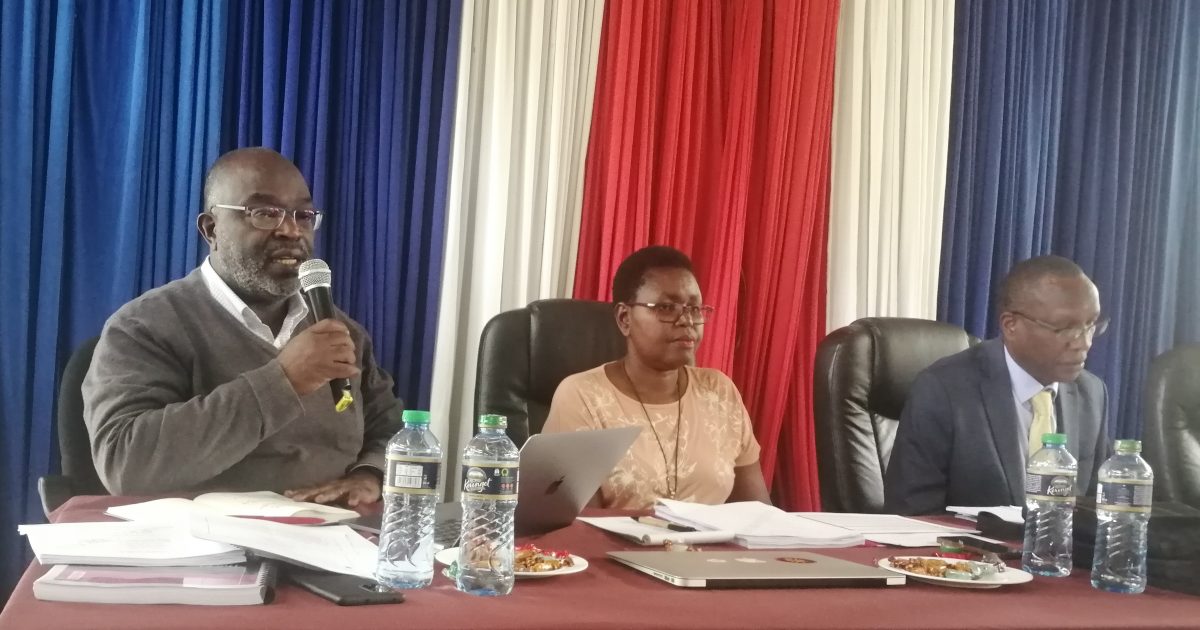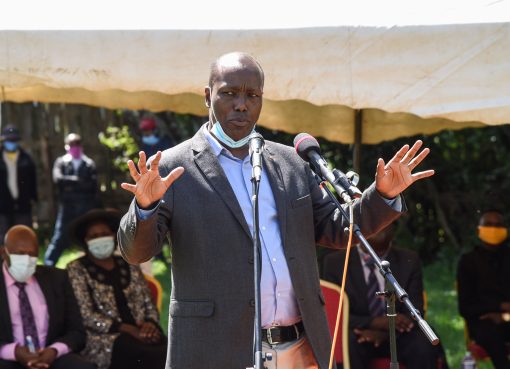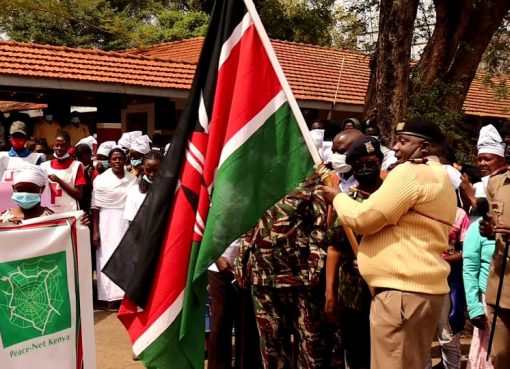The Presidential Task Force on Establishment of a National Lottery has disclosed that the proceeds will be used to support various charitable activities including sports initiatives, arts, business support, and emergency response to droughts, floods, fires, and pandemics.
The taskforce on Tuesday said it has been benchmarking against other countries that have run national lotteries for decades such as the US, UK, South Africa, and Singapore to learn best practices in running the proposed lottery.
According to Mr Erick Korir a member of the Task Force’s Technical Committee, sport will be among the biggest beneficiaries of the proposed National Lottery.
The proposal to repeal the 1966 Betting, Lotteries and Gaming Act is part of the presidential taskforce’s mandate to reform the sector.
Mr Korir noted that the Sports, Arts and Social Development Fund, as it currently exists, has been struggling to raise adequate funding for sports programmes, hence the need for fresh, non-government revenue streams that offer the taxpayer some relief.
Speaking at the Regional Commissioner’s plenary hall in Nakuru during a public participation forum, Mr Korir observed that despite the existence of public lotteries such as the Kenya Charity Sweepstake and Win Lotto, Kenya does not have a National Lottery.
A National Lottery is a State franchised lottery raising money for the arts, sports, and charities by selling numbered tickets and giving prizes to holders of numbers drawn at random.
During the event Kenyans from Nakuru, Laikipia and Baringo counties gave their views on Draft Gambling Policy (2023), Draft Gambling Control Bill (2023) and Draft National Lottery Bill (2023), legislation upon which the National Lottery will be anchored.
While the National Lottery Bill (2023) seeks to establish the National Lottery, National Lottery Board and National Lottery Fund, the Gambling Control Bill (2023) basically focuses on regulating betting.
The Gambling Policy (2023) sets out to transform gambling into a force for social progress while promoting responsible gaming.
Mr Korir indicated that Kenyans were spending billions of shillings on gambling that was not beneficial to the economy.
“Withholding tax on winnings from betting increased by 116.9 per cent from Sh 465 million in December 2021 to Sh1.008 billion in December 2022 reflecting significant growth potential. We are working on a framework that will guarantee responsible gambling. Current legislations that were created in 1966 to govern the activity are out of sync with technological advancements,” he said.
He went on “The national lottery will be used to support good causes where the money will be used to benefit the people of Kenya,”
Other Task Force’s Technical Committee members present included Dr Eric Aligula and Ms Judith Kiragu.
President William Ruto appointed the 25-member Task Force, headed by billionaire industrialist Narendra Raval, on March 17 to, inter alia, review best practices, develop policy and lay out an implementation plan that would yield the National Lottery.
Other members of the Task Force’s Steering Committee include Gideon Thuranira (vice-chairman), Paul Russo, Anne Wakathiru Njenga, Grace Kamau, Abdillahi K. Mutwafy and Jackline Chelangat Tonui.
The Task Force’s Technical Committee is headed by Linda Musumba with its membership including Wanjiku Wakogi, Dr Aligula, Collins Kiprono, Peter Mbugi, Fred Mbasi and Geoffrey Malombe, Mr Korir, Wilson Njenga, Catherine Ochanda and Murimi Murage with Clinton Mwita and Margaret Githaiga the Joint Secretaries.
The government is represented by the Principal Secretaries from Treasury, Interior, Culture and Heritage alongside the Solicitor-General with the Council of Governors also on board.
Over the years, efforts to launch a national lottery have proved futile, with the Vision 2030 Development Secretariat the latest to mull over the idea, projecting a Sh500 million annual cash injection into sports development from a proposed, still-born National Sports Lottery Fund.
Mr Korir observed that world over, national lotteries have been central to funding sports programmes and developing sports infrastructure with over 80 countries having adopted this model.
“In countries such as the US, National Lotteries are central to revenue mobilization by States who run popular lotteries such as Mega Millions and Powerball as designated National Lotteries,” he explained.
He pointed out that one of the criteria that will be used to decide how to utilize the proceeds is that individuals or groups will apply to the lottery fund to propose how part of the funds will be shared.
“The lottery fund on its own motion will also be able to decide how to share out the proceeds to the selected good causes,” he said.
Statistics available at Betting Control and Licensing Board for the 2022/23 financial year indicates that Kenya has 13 public lotteries, 56 public gaming concerns alongside 105 bookmakers duly registered.
Ms Kiragu observed that Kenya is the third-largest gambling market in Africa after South Africa and Nigeria with the industry realizing Sh202 billion in revenues in 2019.
She added that this strongly indicated the massive potential for revenue generation in this sector.
“Enacting legislation that would pave way for the National Lottery is certainly the right move to tap into this market for the benefit of the “hustler,”
Dr. Aligula explained that 50 per cent of the proceeds from Kenya’s proposed National Lottery will go towards payouts with 38 per cent assigned to “good causes” and the rest for administration.
Among the “good causes”, “sports, recreation, arts, culture and national heritage” has been assigned 20 per cent with 40 per cent of the lottery’s proceeds going to “charitable causes”, 30 per cent to “economic empowerment”, eight per cent to “signature transformation projects” and the remaining two per cent to “emergencies.”
“This is a good place to start as we look forward to public participation and hope Parliament fast-tracks implementation of the enabling legislation,” he stated.
Dr. Aligula indicated that in the proposed changes to gambling rules by the Presidential Taskforce on the establishment of a National Lottery, the government will slash a chunk of the billions staked every year from punters and channel them into a compulsory Hustler Fund-style savings kitty promoted by President William Ruto’s administration as a way of developing a savings culture among Kenyans.
Punters will also stake a minimum of Sh20 through online gambling in the proposed changes.
The new Bill proposes to carve out part of the wagered amount for savings which will be determined by the new Gambling Regulatory Authority in consultation with the Interior Cabinet Secretary.
“A player in the online gambling activity shall not bet an amount less than Sh. 20 in a competition. The minimum amount shall be inclusive of such saving component for the player as shall be determined by the Authority in consultation with the Cabinet Secretary,” says the draft Gambling Control Bill.
The proposed law describes online gambling as any form of communication undertaken through remote communication and shall see operators licensed as online bookmakers, online lotteries or online casinos.
The Bill, which targets the millions of Kenyans who bet every year, is the latest tool by the President Ruto’s administration to enforce savings in the informal sector after the Hustler Fund, which has so far collected more than Sh1 billion. The new Bill, if approved, will replace the Betting, Lotteries and Gaming Act.
The proposal to force punters to save with every bet they place will add to the deductions and taxes placed on the gambling and betting industries.
For instance, wagered amounts currently attract tax at the rate of 7.5 per cent while winnings attract withholding tax at the rate of 20 per cent.
The new proposals have, however, retained the gambling tax (currently known as the betting) tax at 15 per cent of the revenue generated by the betting and gambling firms.
Dr Aligula said firms shall nevertheless be required to pay a monthly gambling levy to the Gambling Regulatory Authority at the rate of no more than one per cent of the monthly gross gambling revenue.
He warned that operators risk penalties of up to Sh5 million or an imprisonment term of up to six years for contravening the order by permitting a person to engage in online gambling activity for an amount less than the prescribed Sh 20.
“The operators shall be tasked with registering participants in online gambling and putting in place measures to ensure that minors are not registered, including having to request for proof of age,” added Dr Aligula.
The operators will be required to set a gambling control system that shall capture key operational disclosures, including online security, safety and security against criminal activities, online payment ecosystem, protection measures against vulnerability and gambling and underage gambling, awareness and education and responsible advertising.
The Gambling Regulatory Authority shall be expected to facilitate real-time monitoring of gambling and make the same available to the Communications Authority of Kenya (CA) and other relevant government agencies.
In the case of mobile online gambling, lottery or a betting licence, particulars of network connectivity with two links to mobile operators shall be provided to the Authority [CA],” the draft bill reads further.
Operators are expected to pay out prize money within two days and within seven days for non-monetary prize.
Njoro Deputy County Commissioner Mr David Mbevi noted that uncontrolled betting has wrecked lives and could continue doing so if it is not checked.
The administrator who represented Nakuru County Commissioner said while there is nothing inherently wrong with betting, there is an urgent need to slay the dragon of betting addiction in our society.
“We need to act fast before it is too late. The proposed laws will do more in terms of regulating the industry to curb the current obsession with betting,” added Mr Mbevi.
By Anne Mwale





